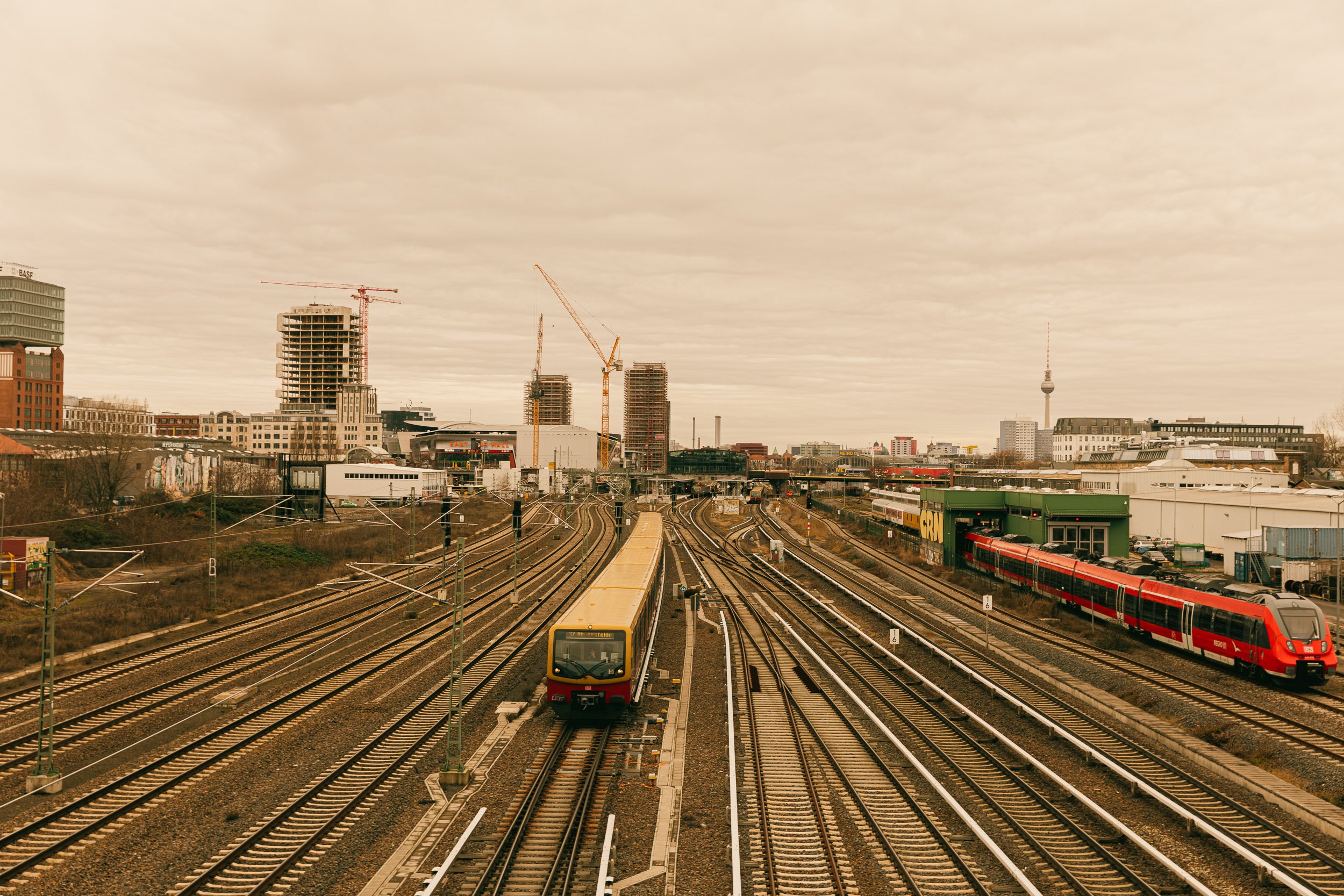The collective Raumstation questions and breaks down prevailing power structures in urban spaces and in digital collaboration.
The collective Raumstation is an interdisciplinary platform for people who are dealing with public space especially in urban, but also in rural areas. The collective was founded in 2013 as a student initiative in Weimar. It is open, grassroots democratic and feminist. To this day, two more Raumstation locations emerged in Vienna and in Berlin.
Raumstation explores public spaces with experimental methods of space exploration, questions prevailing power structures and actively tries to break them down through playful artistic interventions. Their critical approach towards power clearly applies to analogue and digital spaces alike.
Inka Kuik, member of the collective, explains: “Our work is all about power structures in urban spaces. The logical conclusion is to apply this to digital spaces as well and to question power structures there too – by not using Zoom or Slack or Google Drive for instance. Instead, we work with programmes which are based on open source software and therefore withdraw from these power structures.”
 Image: Daniel Lucas Faró
Image: Daniel Lucas Faró
This mindset is an integral part of the collective’s work. Privacy and data security is a priority for them. Raumstation has its own cloud and uses the server of their partner, the student initiative Maschinenraum in Weimar. Last year, the communication was re-located to Mattermost and the weekly plenary session is held on BigBlueButton, accessible through the initiative Initiativenforum Berlin. When a new tool is introduced, the collective tries to get all members on board. The re-location from Slack to Mattermost, for example, was carried out during a plenary session.
“Due to our collaboration across different cities, the collective Raumstation was effectively using digital tools and virtual collaboration even before the pandemic”,
explains Inka Kuik. The collaboration within the collective is organised rather in form of a network, therefore important structures were built up beforehand and could be used directly when first restrictions came to action.
However, the collaboration doesn’t always work smoothly. The main reason is an unstable internet connection, for example when plenary sessions with ten people are held. “It seems absurd that we rely on digital forms of work and basic infrastructure, namely the internet, doesn’t work correctly.”, says Inka Kuik. She adds: “It’s very frustrating when you’re doing volunteer work and then have to deal with outages.” By now she sometimes uses the option to dial in to a video conference via the phone, but of course, this solution is not ideal.
Despite all the challenges, Inka Kuik sees the opportunities changed work forms during the pandemic have brought. It is, of course, a pity that members can no longer meet in the collective’s offices in Berlin (which they had finally found after a long search). Still, the digital meetings allow people to participate who otherwise would not be able to join due to a lack of time or because they are located far away. Also, the plenary sessions are now much more focused since everyone is tired of online meetings after a full day of work.
In 2020, the collective was generally quite active in spite of the pandemic. The yearly forum “Right to City“ could be held spontaneously in a digital space. Raumstation intensively examined ways to implement the right to city digitally and this led to a lot of support from their network, especially for carrying out digital conferences.
Last summer the collectives of Vienna, Berlin and Zurich organised a research project and an exhibition about the topic of neighbourhood. The exhibition was inaugurated in Vienna, unfortunately without members from Germany. They could not join due to travel restrictions to Austria introduced a couple of days earlier.
Finally, Inka Kuik points out that Raumstation benefits a lot from their partnership with the student initiative Maschinenraum in Weimar. Whenever they have questions, they can draw on the expertise of Maschinenraum and share infrastructure. “Building up everything from scratch would be quite challenging”, she says and underlines the importance of networks for digital collaboration between civil society initiatives.